The remains of the iron-clad army of the ancient Greek island army
Nearly 100 sets of iron-clad remains in the ancient Greek cemetery are likely to belong to those who supported the coup by an Athens noble.
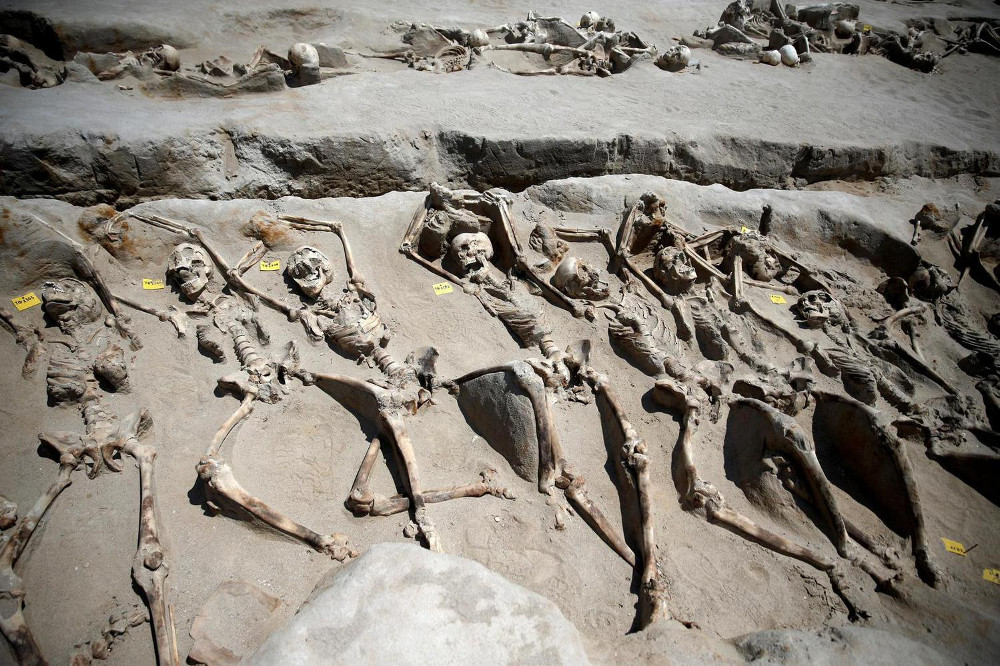
International Business Insider reported that archaeologists found at least 80 skeletons in an ancient Greek cemetery dating from the 5th to 8th centuries BC.Due to the wrists of the iron-clad remains, the archaeological team thinks they belong to the victims of a collective execution.However, they have not been able to clarify the status and the reason these victims were buried in the cemetery.
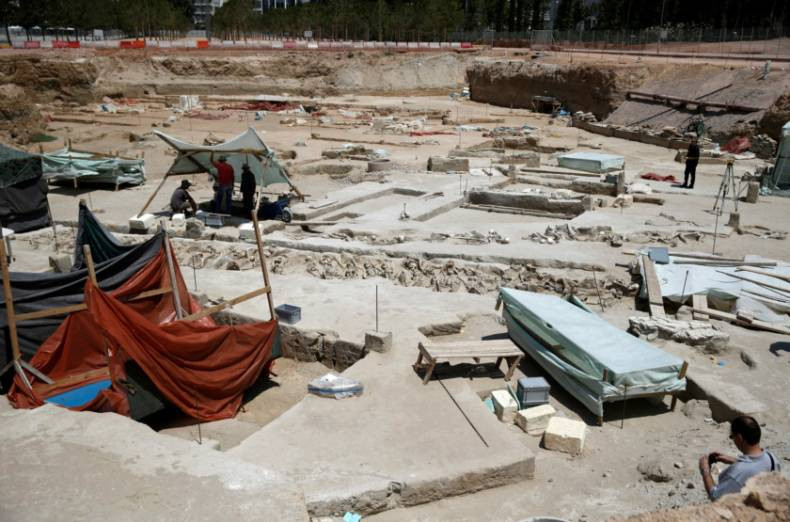
The way to bury victims shows a certain reverence.Some victims lie in a long line, while others are stacked on top of each other, with their arms and legs folded and their teeth wide open.Strict burial indicates that the dead are not slaves or criminals.
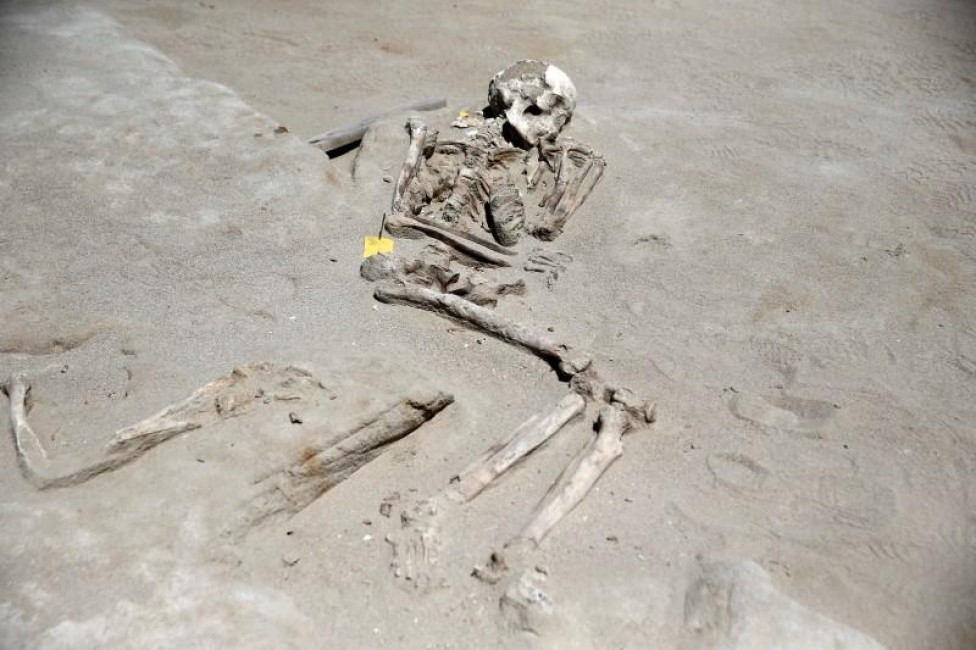
Dr. Stella Chryssoulaki, who directed excavation, said all the victims were executed in the same way, and most were still very young.
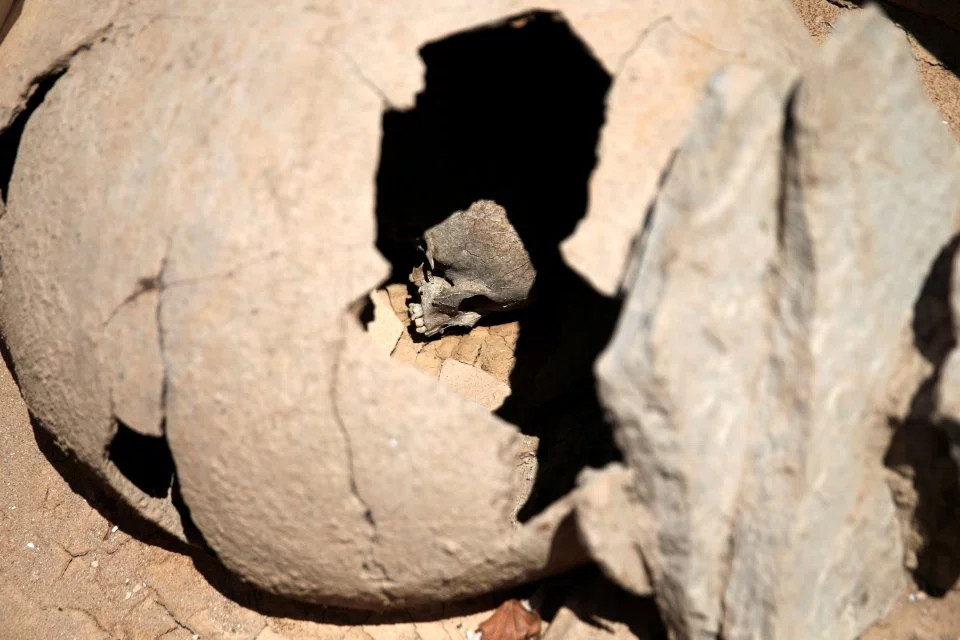
The victims had good health when the execution took place, according to Chryssoulaki.Most skeletons have arms raised above their heads with wrists tied with iron shackles.
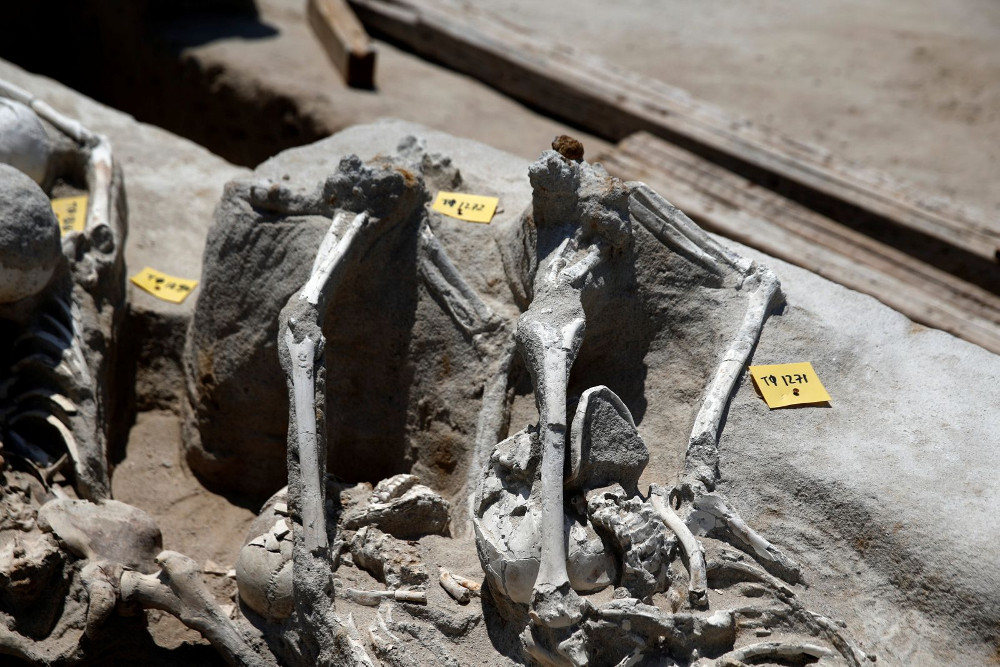
The team found skeletons earlier this year in an area of Falyron Delta, the vast ancient graveyard excavated while building the national opera and library, covering an area of more than 440,000 square kilometers.

The cemetery contains more than 1,500 scattered remains.Many of them are children buried in ceramic pots, while some adults rest in stone coffins.

According to one theory, these are the remains of the supporters of Cylon, an Athenian noble and Olympic Games champion.He conducted a coup in 632 BC with the help of his father-in-law and the tyrant Megara.

After the coup failed, the Cylon escaped and hid in a temple at the Acropolis.His supporters were killed.Experts hope that DNA testing and anthropological research will help explain exactly their deaths.

"Through DNA testing on skeletons, we can confirm the hypothesis that this young group of young men belongs to a noble army's coup d'etat," Chryssoulaki said.
- Greece: Detecting the wrecks of two shipwrecks in the Ionian Sea
- New theory about terracotta army Qin Shihuang
- The massive base of the ancient Greek navy
- Will the 'Iron Man' special all over?
- Good news aggregation in the 3/09 week
- The Greeks built an army to guard the tomb of Qin Shihuang
- The naked truth about the legendary Greek warrior
- Discovering a 2,000-year-old remains in a shipwreck in the Mediterranean
- Hoplite - The most powerful army in Greek history
- Mystery hidden tomb 2,000 years filled with gold jewelry in Greece
- The temple of the goddess Artemis was discovered in Greece's second largest island
- Detecting ancient human remains 1.8 million years in Indonesia
 Discovered an ancient centipede fossil 99 million years old
Discovered an ancient centipede fossil 99 million years old Discovered bat-like dinosaurs in China
Discovered bat-like dinosaurs in China Discovered a 200-year-old bronze cannon of the coast
Discovered a 200-year-old bronze cannon of the coast Discover 305 million-year-old spider fossils
Discover 305 million-year-old spider fossils The cause of the fire and how to survive from a scientific perspective
The cause of the fire and how to survive from a scientific perspective  Test AND and the secret of Viking empire
Test AND and the secret of Viking empire  Are prehistoric people happy to be eaten by their fellow humans?
Are prehistoric people happy to be eaten by their fellow humans?  Aztecs specialize in eating prisoners meat
Aztecs specialize in eating prisoners meat  Detoxification for dioxin victims by Hubbard
Detoxification for dioxin victims by Hubbard  Soothe 'Orange pain' in 2012
Soothe 'Orange pain' in 2012 